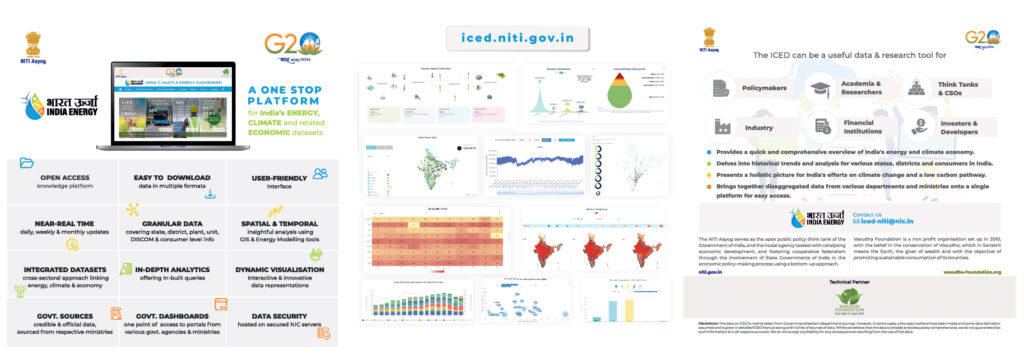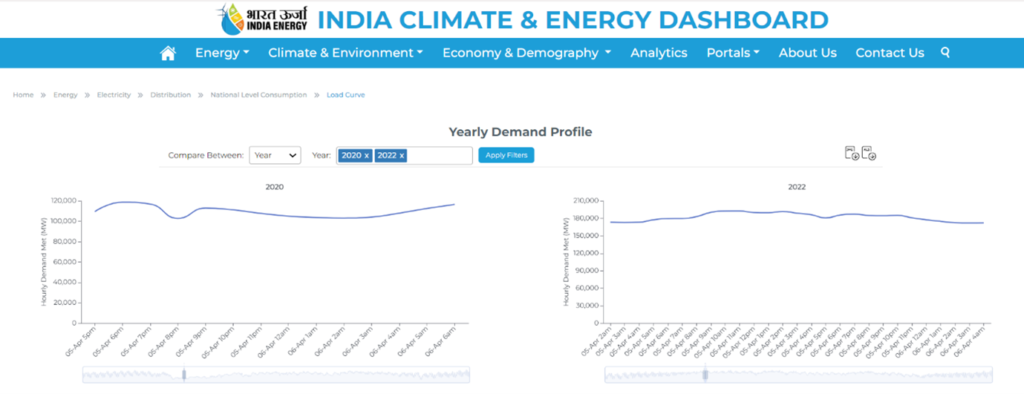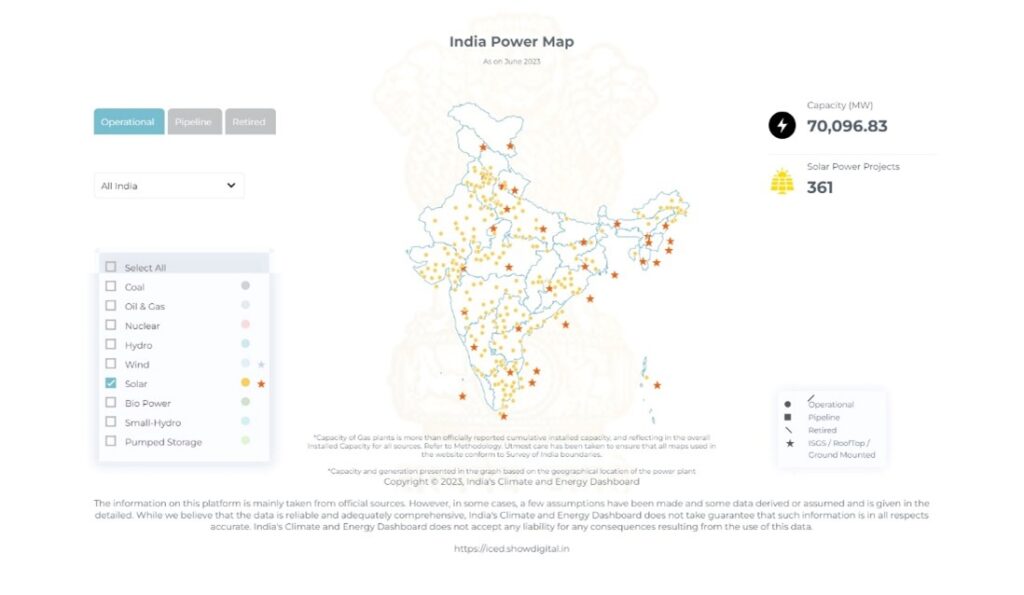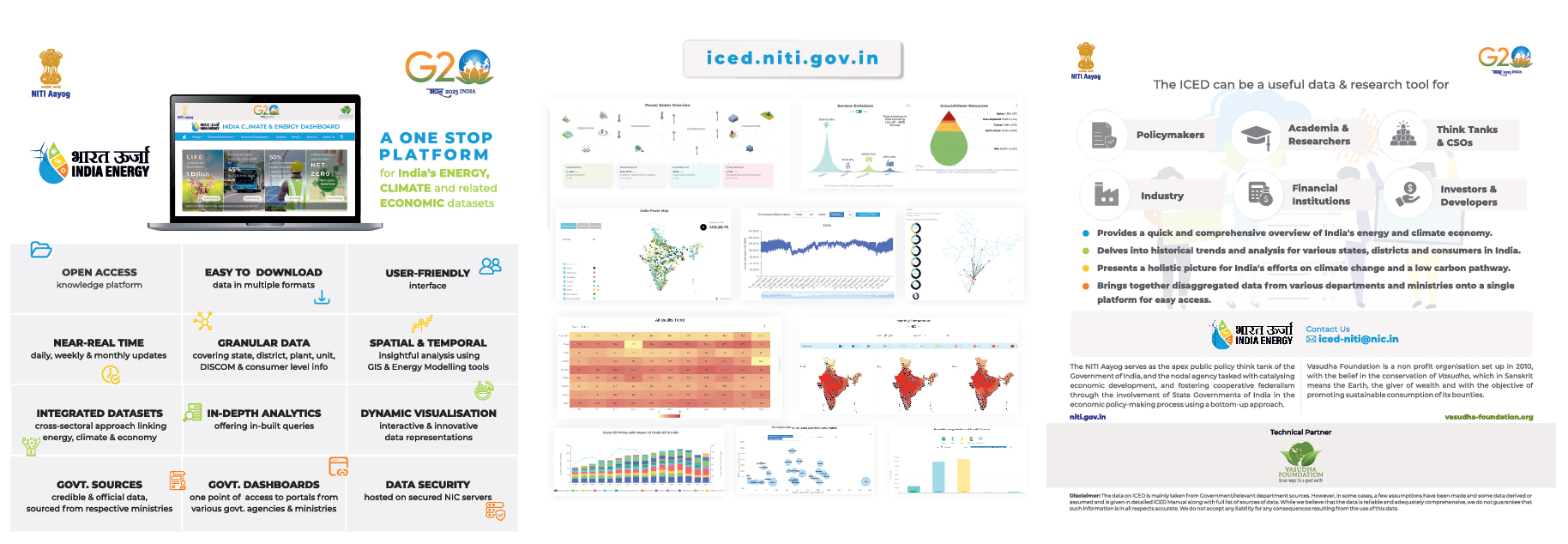- Jaideep Saraswat and Nikhil Mall

In today’s age, often referred to as the “data age,” our computer networks and storage devices are constantly flooded with terabytes or petabytes of data. This exponential growth in data can be attributed to the computerization of economies. To make the most of this wealth of information, it is crucial to transform it into organized knowledge.
One area where organized knowledge is of utmost importance is in the decarbonization of economies. To address this, it becomes essential to focus on various sectors and sub-sectors within each economy, considering their interactions with factors such as climate and financial elements. Collecting data from these diverse sectors and analyzing it independently and collectively is necessary to uncover valuable insights and patterns.
As data abundance becomes the new norm, India has taken a firm step in this direction with the launch of the India Climate and Energy Dashboard (ICED). This transformative initiative serves as an open data portal, aiming to leverage the power of information for driving informed decisions and devising effective strategies to combat climate and energy-related challenges. Emphasizing user-friendliness as its core principle, the dashboard provides near real-time data across crucial domains, encompassing power, economy, climate, and more.
Distinguishing itself from others, the ICED allows users to effortlessly download data in jpeg/xls format, enabling deeper examination and analysis. This convenience, coupled with the comprehensive datasets spanning various sectors, greatly facilitates the endeavors of researchers working in the realm of climate change. In addition, this portal will also allow the users to verify dubious claims that are given a veneer of legitimacy by glossing with numbers, figures, statistics, and graphs. For instance, a common misconception amongst the masses is that renewable energy is more expensive than conventional generation sources. However, Figure 1 obtained from ICED demonstrates a starkly different reality, revealing that renewable energy sources are the most economical energy sources of all.

Figure 1: Total Cost of various Electricity Generation Sources
The dashboard also proves invaluable in outlier detection. For instance, during the 9 pm 9 minutes test of grid flexibility in 2020, India’s energy demand witnessed an extraordinary event when it significantly dropped and then ramped up again. This anomaly occurred in response to the Honourable Prime Minister’s request for citizens to demonstrate solidarity and support during the challenging times of the COVID pandemic.

Figure 2: Dip in All India Demand on April 5, 2020
Another area where the dashboard is handy is to carry out cluster analysis. As illustrated in Figure 3, a notable concentration of solar power projects can be observed in states such as Rajasthan, Gujarat, and Telangana.

Figure 3: Location-wise Mapping of Solar Power Projects in India
There are several factors that led to the development of this dashboard including the conducive policy environment in India that nurtures digital collaboration and the central government’s commitment to positioning India as a global leader in data accessibility, driving digital solutions, and optimizing processes while advancing the decarbonization of the Indian economy. Multiple ministries and departments, such as the Ministry of New and Renewable Energy (MNRE), the Ministry of Coal, and the Central Electricity Authority (CEA), joined hands to furnish the dashboard with valuable data.
Another noteworthy aspect of this dashboard is the empowerment of state and local government stakeholders, who can now make well-informed decisions backed by granular data, further bolstering India’s efforts in sustainability and climate action.
Going forward, in the upcoming phase, the dashboard will expand its datasets to encompass new avenues, including industries and end-use applications. Additionally, it will incorporate a curated query builder, providing users with enhanced assistance and streamlined access to relevant data.
ICED stands as a testament to India’s determination to embrace a greener future. We hope it can become an indispensable data-to-everything platform, driving informed decisions and spearheading the decarbonization efforts within India’s energy sector.
Today, we revel in its successful launch.




